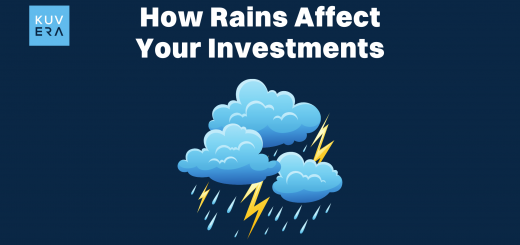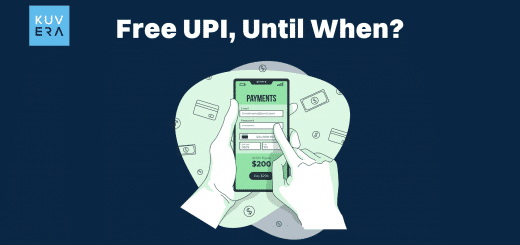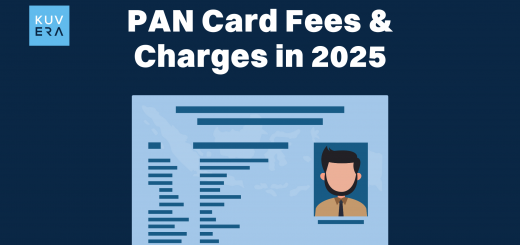Nowadays, it is common for Indian businesses to raise money from the public to expand their operations, which, in turn, increases their shareholders’ confidence. Rights issuance is one of the new fundraising methods, which allows existing shareholders to buy additional shares at a discount.
Rights Entitlement (RE) gives all eligible shareholders the right to subscribe to such an issue. With SEBI allowing buying and selling rights shares online, any investor can benefit from such a bargain.
Read along to know everything about Rights Entitlement.
What Is Rights Entitlement of Share in the Stock Market?
Rights Entitlement (RE) refers to temporary Demat securities representing a shareholder’s eligibility to apply for a rights issue. Today, many companies issue such shares to their existing shareholders, which they can buy at a discounted price within a specific time. REs are not actual shares, but you can use them to purchase shares based on your entitlement.
If you are an eligible shareholder, rights shares will be credited to your Demat account in the proportion of your holdings as on a record date set by the company. You can use these entitlements to apply for the rights issue either partly or wholly. You can also sell them on stock exchanges from your holdings through the renunciation of rights issue.
On the other hand, you can choose not to subscribe to the issue or trade the entitlement. It will lapse if you do not subscribe or renounce your RE within the issue closing date.
What is Right Issues?
Now that you know about Rights Entitlement let us learn how it works with the example of Bharti Airtel:
Bharti Airtel had announced that it was giving its investors the entitlement for rights shares worth Rs. 21,000 crore. The record date for determining shareholders’ eligibility was September 28, 2021. The issue opened on October 5 and was fully subscribed by October 21.
Eligible shareholders could buy one share for every 14 Airtel shares they held at Rs. 535/share. It was a partly paid-up rights issue, with Airtel charging only 25% fees upfront and 75% over the next three years.
So, if you owned 560 shares of Bharti Airtel Share price, you would be eligible to purchase 40 rights shares. On the other hand, if you did not own shares in multiples of 14, your eligibility would be rounded to the nearest multiple. So, if you owned 540 shares, you could buy 39 more shares.
Types of Rights Issues in India
The following are the various types of issuing rights shares in India.
-
Fully paid-up rights issue:
In this type of issuance, you need to pay the entire amount at the time of application. You only have to pay once, and there is no obligation for recurring payments.
-
Partly paid-up rights issue:
You only need to pay a partial amount when applying for the shares. The rest of the amount is to be paid in installments when the company makes the calls.
-
Renounceable rights issue:
The shareholder can choose to exercise their right or ignore it with these rights issues. The RE holder can also sell their rights in the open market. Most companies in India issue renounceable rights.
- Non-renounceable rights issue: These issues cannot be transferred or sold. The RE holder can either exercise their right to buy rights share or let it lapse.
Features of Rights Entitlement in India
The following are some of the critical features of RE shares to keep in mind:
- You cannot transact with rights shares through intraday trading as their settlement occurs in the Trade to Trade (T2T) segment. In this, all ‘buy’ and ‘sell’ transactions need to be delivered in T+2 days.
- The trading of RE shares starts on the issue opening date and usually closes in 3 to 4 working days before closing.
- You can trade rights equity shares during any market trading session, including pre-open sessions, continuous trading sessions, block deal sessions, and post-closing sessions.
- RE shares trade with a separate ISIN against the shareholder’s holdings. Their NSE symbol and BSE scrip code are also different.
- Any shortages in Rights Entitlement get closed directly at the highest prevailing price.
What Happens When You Let the Rights Entitlement Lapse?
If you are an eligible investor, you will get the Rights Entitlement credited to your Demat account. However, if you do not buy the right shares through the issue or sell them, you can lose money as it lapses.
Investors lose money from RE in two ways:
- They can forget about applying for the rights shares via the RE or let them expire.
- Investors who buy RE from others can forget to apply for it before the deadline.
It may be a good idea to invest in a well-performing company that credits its RE to you. However, you will always want to check a company’s performance, financials, and objectives for raising funds before you invest. If a company is not doing well, it is a good idea not to be lured in by the discounts.
On the other hand, you can always sell the Rights Entitlement to other shareholders to avoid losses. Even if the shares do not perform well, you can still profit from them through sales.
How to Calculate the Value of a Rights Entitlement?
To calculate the REs, companies apply a ratio on the current shareholding of all their investors on a specific date. This date is the record date, a cut-off date that determines which shareholders are eligible for a rights issue.
The RE price is usually between a company’s share price and its offer price. The base value of RE is calculated on the first day of RE issuance by using the following formula:
Base price of rights shares = Closing price – Rights Entitlement price
Therefore, if the share price of Company ABC is Rs. 140/share and it goes for a rights issue at Rs. 120/share, its RE price would be Rs. 20. Every day after its issue opens, the closing price of this RE would be its base price.
. If you import your stock portfolio to Kuvera, you can find out what a stock’s current price is, it’s high, it’s low, its 52-week high, its 52-week low, its change over a year, its change over five years, its price to earnings per share, its market capitalization to book value, its TTM EPS, dividend yield, market capitalization, trading volume, and average trade volume are. Kuvera’s app also lets you buy and sell stocks.
Final Word
Rights issuance has become a new way for companies to quickly raise cash from their existing investors. Before investing in the right shares, check the company’s fundamentals instead of deciding based on the discounts.
Frequently Asked Questions
-
How can you apply for rights shares in India?
You can apply online for rights shares through either the ASBA (Applications Supported by Blocked Amount) or the R-WAP (Registrar’s Web-based Application Platform) facility.
In the first process, investors with an ASBA-enabled bank account can apply for rights shares in a process similar to that of IPOs. In the case of the second process, you can apply for RE shares using internet banking or the UPI facility.
-
What are the benefits of issuing Rights Entitlements for companies?
The following are some of the benefits of using RE to raise capital:
- It helps retain the confidence of existing shareholders.
- RE is cost-effective to raise funds as it does not require much advertisement or underwriting.
- It is one of the fastest methods for a company to raise capital without increasing its debt burden.
-
How does a rights issuance impact share prices?
As rights issuance increases the ePHR, it brings down the share price. As a result, all existing shareholders’ total holdings will decrease. It also brings down the company’s EPS (earnings per share).
-
Can you buy Rights Entitlement if you are not an existing shareholder?
Yes, investors who are not eligible for any RE can buy it from the stock market or through an off-market transaction. After this, they can apply for rights share when the issue opens.
-
Can investors oversubscribe to a rights issue?
Yes, when people apply for additional shares over and above their entitlements, it can lead to an oversubscription. However, renounces (people who bought an RE) cannot apply for additional shares beyond their entitlements.
Interested in how we think about the markets?
Read more: Zen And The Art Of Investing
Watch/hear on YouTube:
Start investing through a platform that brings goal planning and investing to your fingertips. Visit Kuvera.in to discover Direct Plans and Fixed Deposits and start investing today.
#MutualFundSahiHai #KuveraSabseSahiHai!











